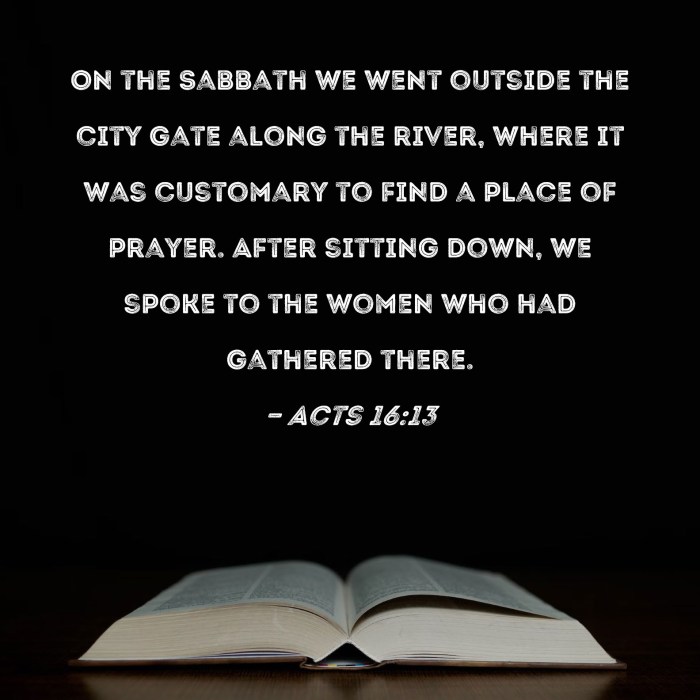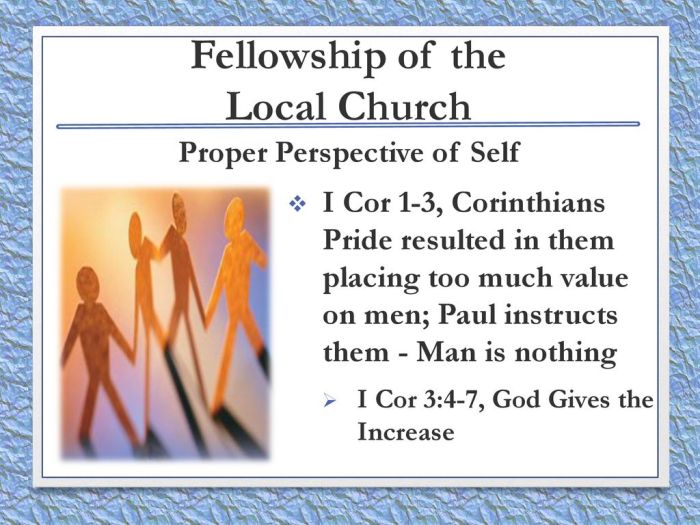Paul instructs the corinthians that his perspective – Paul’s perspective on various aspects of church life, including organization, worship, spiritual gifts, and Christian conduct, significantly shaped the practices of the early church and continues to influence Christian thought and practice today.
Through his letters to the Corinthians, Paul provided detailed instructions and guidance on these matters, offering insights into his theological beliefs and practical wisdom.
Paul’s Perspective on Church Order
Paul provided detailed instructions regarding the organization and structure of the Corinthian church. He emphasized the importance of order and submission to leadership, while also encouraging active participation from all members.
Leadership Structure
- Paul established a hierarchy of leadership within the church, with elders (presbyters) and deacons serving as overseers and administrators.
- Elders were responsible for teaching, preaching, and overseeing the spiritual well-being of the congregation.
- Deacons were responsible for practical matters such as distributing aid to the poor and assisting with church services.
Congregational Participation
Paul encouraged active participation from all members of the church, regardless of their role or status.
- He emphasized the importance of spiritual gifts, believing that each member had unique abilities to contribute to the body of Christ.
- Paul encouraged women to participate in worship and prophecy, while also emphasizing the importance of submission to male leadership.
Implications for Contemporary Church Governance
Paul’s teachings on church order continue to shape contemporary church governance models. Many churches today adopt a similar hierarchical structure, with elders and deacons serving as leaders.
Paul’s emphasis on congregational participation has also influenced modern churches, leading to the development of lay leadership roles and opportunities for all members to contribute their gifts and talents.
Paul’s s on Worship
Paul provided specific directives regarding worship practices in the Corinthian church. His instructions aimed to create an orderly and meaningful worship experience that glorified God and edified the believers.
Order and Decorum
- Paul emphasized the importance of order during worship services, instructing the Corinthians to “do all things decently and in order” (1 Corinthians 14:40).
- He encouraged orderly participation in prayer, prophecy, and speaking in tongues, with proper interpretation to ensure understanding.
Spiritual Edification
Paul’s primary concern was that worship should edify and build up the church.
- He instructed the Corinthians to “speak to one another with psalms, hymns, and spiritual songs” (Ephesians 5:19).
- Paul encouraged the use of spiritual gifts for the benefit of the congregation, emphasizing that all things should be done “for edification” (1 Corinthians 14:26).
Continuing Influence on Christian Worship
Paul’s teachings on worship have had a profound impact on Christian worship practices throughout history.
- Many churches today incorporate elements of Paul’s instructions, such as the use of hymns, prayers, and spiritual gifts.
- Paul’s emphasis on order and edification continues to shape the structure and content of worship services in many denominations.
Paul’s Guidance on Spiritual Gifts: Paul Instructs The Corinthians That His Perspective

Paul taught extensively about the nature and use of spiritual gifts in the Corinthian church. He emphasized that gifts are given by the Holy Spirit for the benefit of the body of Christ.
Nature of Spiritual Gifts
- Paul believed that spiritual gifts are diverse and varied, given to each believer according to God’s purpose.
- He categorized gifts into three main types: gifts of speech, gifts of service, and gifts of power (1 Corinthians 12:8-10).
Exercise of Spiritual Gifts
Paul ed the Corinthians to exercise their spiritual gifts in a responsible and orderly manner.
- He emphasized that gifts should be used for the edification of the church, not for personal gain or glory.
- Paul encouraged believers to “desire earnestly the best gifts” (1 Corinthians 12:31), but also to recognize that all gifts are valuable and necessary for the functioning of the body.
Unity of the Church
Paul stressed that spiritual gifts are not meant to divide the church but to unite it.
- He taught that each member of the body is essential, regardless of their gift or role.
- Paul emphasized the importance of humility and love in the exercise of spiritual gifts, ensuring that they contribute to the harmony and well-being of the church.
Paul’s s on Christian Conduct

Paul provided detailed instructions regarding Christian conduct, covering a wide range of topics including marriage, divorce, relationships, and ethical behavior.
Marriage and Divorce
| Topic | Paul’s s | |
|---|---|---|
| Marriage | Paul taught that marriage is a sacred union between one man and one woman, established by God (1 Corinthians 7:2-4). | |
| Divorce | Paul generally discouraged divorce, but allowed for it in cases of sexual immorality (1 Corinthians 7:10-11). |
Relationships
- Paul emphasized the importance of love, respect, and submission within relationships (Ephesians 5:21-22).
- He encouraged believers to avoid sexual immorality, drunkenness, and other harmful behaviors that could damage relationships (1 Corinthians 6:18-20).
Ethical Behavior
- Paul instructed believers to live according to God’s moral standards, which included honesty, integrity, and justice (Romans 12:17-21).
- He emphasized the importance of self-control and avoiding worldly temptations (1 Corinthians 10:13).
Ethical Implications
Paul’s teachings on Christian conduct have significant implications for ethical behavior today.
- His emphasis on love and respect provides a foundation for healthy and fulfilling relationships.
- Paul’s instructions on avoiding harmful behaviors continue to guide Christians in making ethical choices.
Paul’s Perspective on the End Times

Paul believed that the end times would be marked by a series of events, including the return of Christ, the resurrection of the dead, and the final judgment.
The Return of Christ
Paul taught that Christ would return to earth in glory to judge the living and the dead (1 Corinthians 15:23-24).
The Resurrection of the Dead
Paul believed that all believers who had died would be resurrected with glorified bodies (1 Corinthians 15:51-54).
The Final Judgment, Paul instructs the corinthians that his perspective
Paul taught that after the resurrection, all people would face a final judgment, where they would be judged according to their deeds (2 Corinthians 5:10).
Impact on Early Church Eschatology
Paul’s teachings on the end times had a significant impact on the eschatological expectations of the early church.
- His emphasis on the imminent return of Christ led to a sense of urgency and anticipation among believers.
- Paul’s teachings on the resurrection and final judgment provided hope and comfort to Christians facing persecution and hardship.
Expert Answers
What were Paul’s views on the organization of the Corinthian church?
Paul advocated for an organized and structured church with designated leaders, emphasizing the importance of order and unity.
How did Paul’s teachings on worship influence Christian practices?
Paul provided specific guidelines for worship, including the use of hymns, prayers, and the Lord’s Supper, which continue to shape Christian worship practices today.
What was Paul’s perspective on the use of spiritual gifts?
Paul believed that spiritual gifts were given by God to build up the church and should be exercised in love and unity, emphasizing the importance of diversity and mutual edification.
How did Paul’s teachings on Christian conduct shape ethical considerations?
Paul provided moral guidance on various aspects of Christian life, including marriage, divorce, and relationships, offering practical wisdom and ethical principles that continue to inform Christian conduct.
What were Paul’s beliefs about the end times?
Paul held an eschatological view that included the return of Christ and the resurrection of the dead, providing hope and encouragement to the early church.